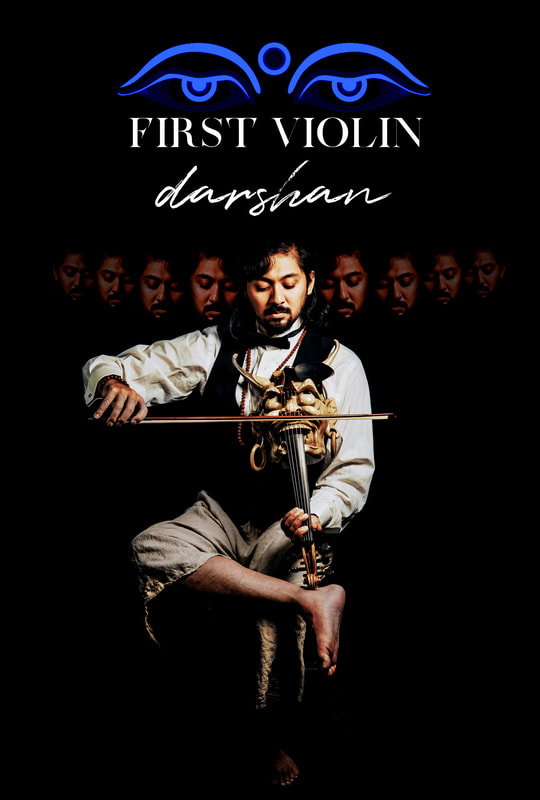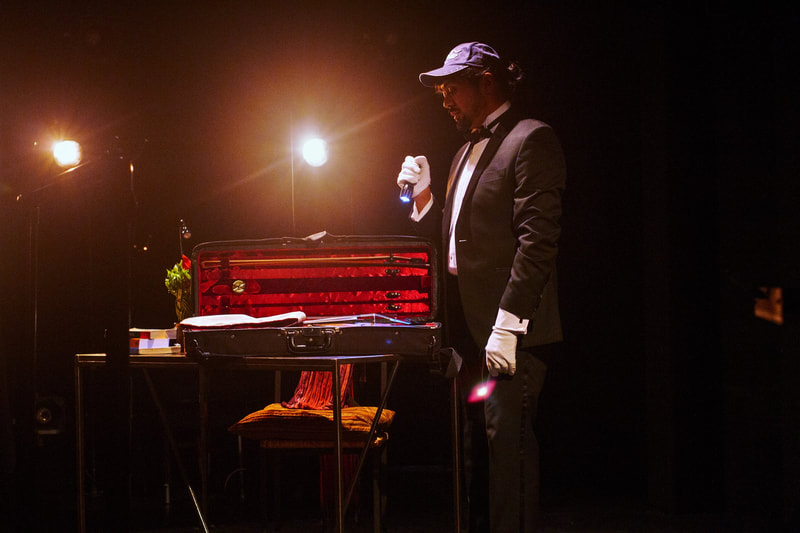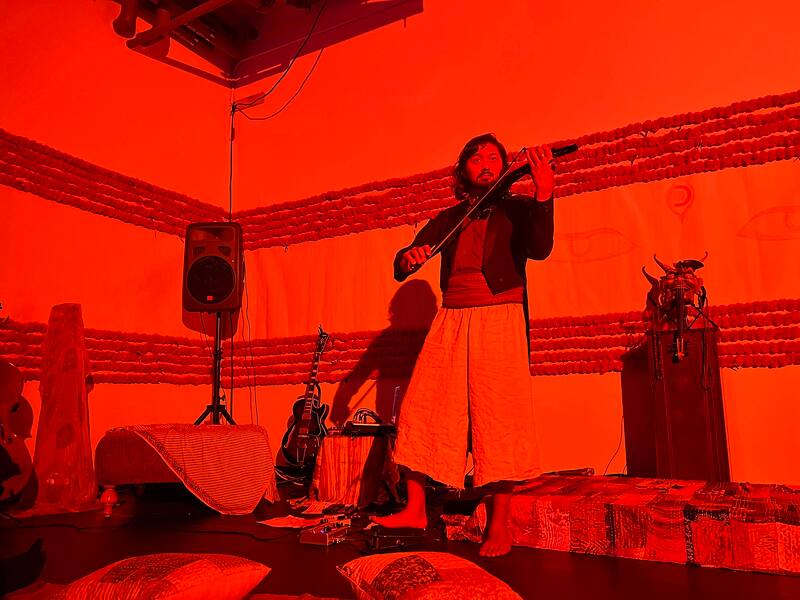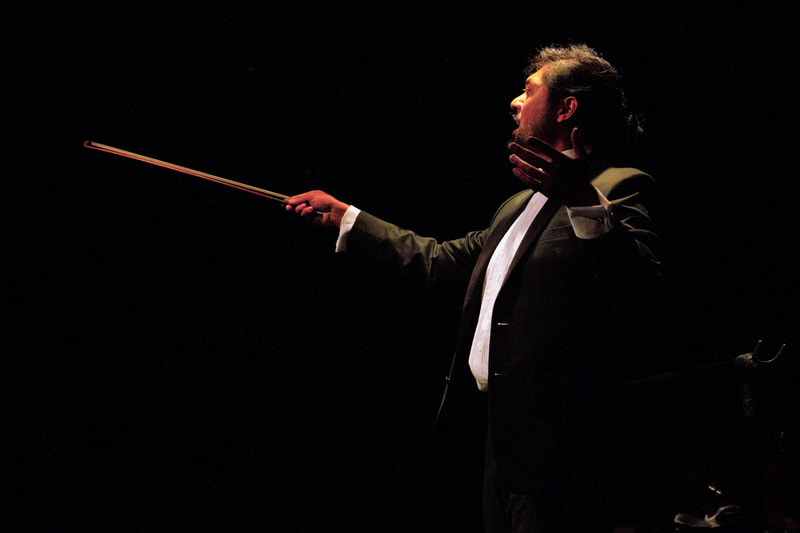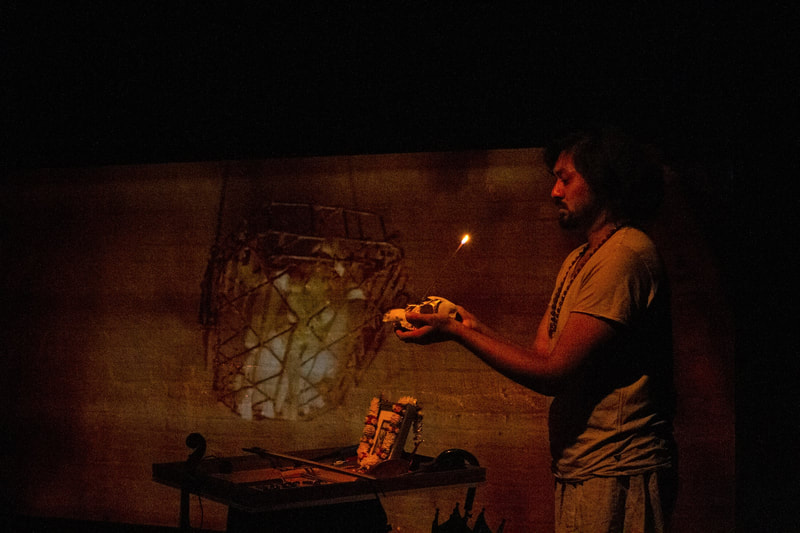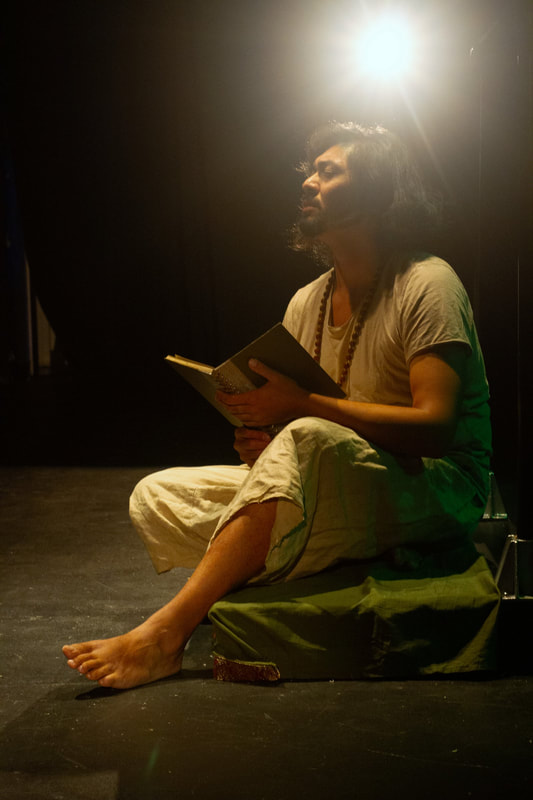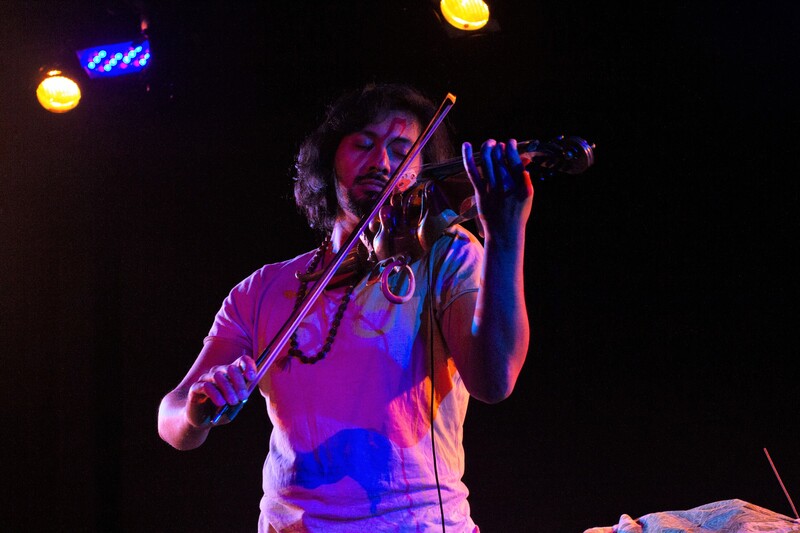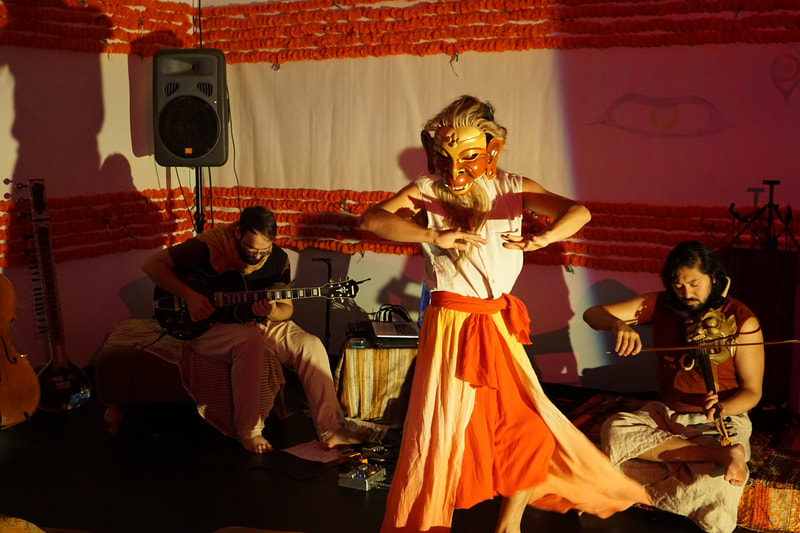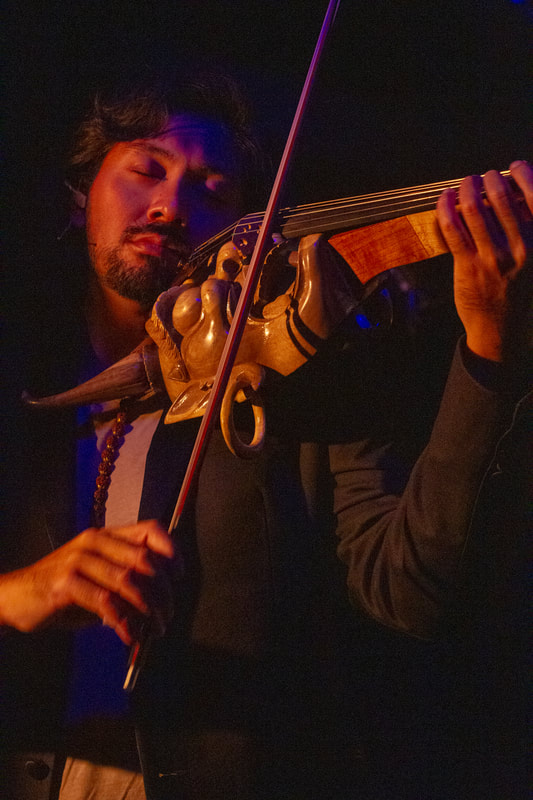|
Produced, written & performed by Sean Devare
original 2019 production at HERE Arts/Theatre Row: Directed by Alex M. Lee Lighting Design by Kate August Stage Manager Glenn Potter-Takata SUITE/Space 2022 production at Mabou Mines: Directed and Designed by Sean Devare Featuring Luke Santy (cello, sitar, guitar) & Tuânminh A Đỗ (ensemble, keys) Lighting Design by Wyatt Moniz First Violin is a biomythography as live performance poeticizing cultural inheritance and musical evolution. In discovering the oldest known ancestor of the violin and its distant connection to the Hindu epic poem The Ramayana, Sean Devare uses spoken word poetry, live music, and autobiographical narration to chronicle his search for, and recreation of the fabled first violin, invented by the demon(ized) King Rāvana. Against a backdrop of personal and political turmoil in New York City, he reinvents the violin by reconnecting to roots. First Violin was developed at Sarah Lawrence College and debuted at HERE Arts Center in the Sublet Series Co-op. Official selection for United Solo Festival at Theatre Row and the inaugural Mixed Asian Media Festival. First Violin darshan was selected for the SUITE/Space Fellowship at Mabou Mines. |
A visionary documentary of a brown man's psyche and a razor-sharp conversation with himself, and us, poeticizing the inner and outer madness of navigating today's America."
— Stew (Tony-award winner, "Passing Strange")
[…] Devare delights in the tangled signifiers of his own intersectionality. In fact, what First Violin’s poetry conveys more than anything else is the transient nature of metaphors and symbols. Meaning drifts through generations and cultures, and that fluidity is an especially potent tonic for Mr. Devare. His violin becomes a lightning rod for that cultural discovery and the rallying cry for his reinvention."
— James Bartholomew, AllAboutSolo.com
While few can account for their own lifetime, Devare time-surfs a couple millennia in 'First Violin.' Western and Asian cultures collide and collude in his colorful retelling of the Ramayana, which he reinterprets through inventive autobiographical unmaskings and pop-culture interrogations demonstrating, among many other things, why they don't call it classic rock for nothing.”
— Richard Gehr (author; writer at Spin, Rolling Stone, Village Voice)

